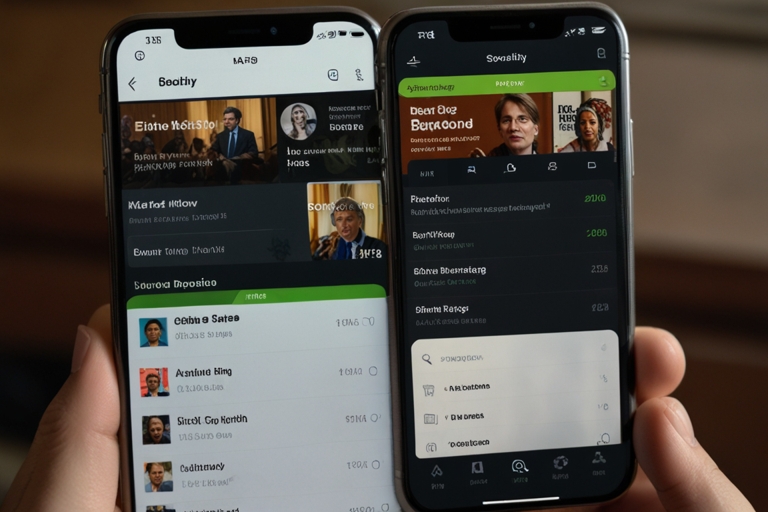
TL;DR
- U.S. Senators Marsha Blackburn and Ben Ray Luján urged the FTC to investigate Spotify’s premium bundle.
- Allegations include unauthorized subscription changes and royalty payment manipulation.
- Spotify’s updated plan includes audiobooks and costs $12 for individuals, $20 for families.
- Critics argue the move caused a $230 million loss for publishers in one year.
- Spotify claims users were notified in advance and could cancel easily.
Senators Allege Spotify Deceived Users and Undercut Creators
Two U.S. Senators are calling for regulatory scrutiny of Spotify over controversial changes to its subscription structure. On June 20, 2025, Senators Marsha Blackburn (R-TN) and Ben Ray Luján (D-NM) sent a formal letter to the Federal Trade Commission (FTC), asking it to investigate whether Spotify automatically upgraded users to a more expensive plan without explicit consent.
The letter also alleges Spotify took advantage of U.S. copyright law, which allows platforms to pay reduced royalties when bundling music with other digital services—like audiobooks. The senators wrote:
“Spotify’s intent seems clear—to slash the statutory royalties it pays to songwriters and music publishers. Not only has this harmed our creative community, but this action has also harmed consumers.”
Background: Spotify’s Restructuring of Premium Plans
In March 2024, Spotify restructured its Premium tiers to include 15 hours of audiobook content per month. The individual plan rose from $10.99 to $12, and the family plan went up to $20. While this included new audiobook perks, critics say the opt-out requirement was unclear and burdensome.
In its statement to Variety, Spotify defended the pricing shift, saying users were:
- Notified one month in advance
- Provided clear cancellation options
- Offered multiple plans tailored to different needs
Still, critics argue the default enrollment harmed both users and rightsholders.
Spotify Bundle Controversy
| Metric | Value | Source |
| New Premium Individual Price | $12 | The Verge |
| Estimated Publisher Losses | $230 million (Year 1) | NMPA via Variety |
| Lawsuit by MLC | Dismissed in Jan 2025 | Billboard |
| Audiobook Offering | 15 hours/month | Spotify |
Royalty Loopholes and Legal Backlash
The controversy centers on Spotify’s use of a royalty discount available under U.S. copyright rules when a music service is bundled with another product (like audiobooks). This bundling strategy has reportedly reduced what Spotify owes to songwriters and publishers.
In 2024, the Mechanical Licensing Collective (MLC) filed a lawsuit accusing Spotify of underpaying royalties due to this bundling tactic. However, the lawsuit was dismissed in January 2025, weakening legal pushback—but not political criticism.
Danielle Aguirre, EVP of the National Music Publishers’ Association (NMPA), claims the shift resulted in over $230 million in lost revenue to publishers in the plan’s first year.
Political Momentum for Regulatory Action
The senators’ letter signals growing bipartisan scrutiny of how tech platforms treat consumers and creators. Senator Blackburn, known for her work on intellectual property, and Senator Luján, who has pushed for digital transparency, jointly emphasized that Spotify’s plan may violate consumer protection principles.
The FTC is now under pressure to determine whether Spotify’s actions fall under deceptive business practices, which could lead to monetary penalties or required remedies.
Spotify has not disclosed how many users were moved to the bundled tier or how many have since opted out.
A Pattern Across Platforms?
This is not an isolated incident. Bundling strategies are becoming more common across digital subscription services, as platforms compete to increase average revenue per user (ARPU). However, such changes must balance:
- User transparency
- Legal compliance
- Fair compensation for content creators
In Spotify’s case, the apparent failure to obtain consent before upgrading plans—coupled with a financial benefit from reduced royalty obligations—has turned a pricing decision into a potential legal and political issue.
Industry and Consumer Implications
The stakes go beyond Spotify. If the FTC rules against the company, it could create precedent for how bundled digital services are managed in the future. It may also influence how copyright law handles multi-service subscriptions, and what protections creators have in such arrangements.
The letter to the FTC is expected to be reviewed in the coming weeks, though no official investigation has been confirmed yet.
Conclusion
Spotify’s decision to restructure its subscription tiers may have unlocked new revenue streams—but it has also raised serious questions about transparency and artist compensation. As U.S. senators demand an investigation, the outcome may determine whether bundling can be legally used to reduce royalty payouts while impacting user experience. Spotify’s statement insists the process was fair, but lawmakers—and publishers—aren’t convinced.





